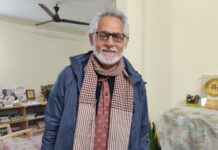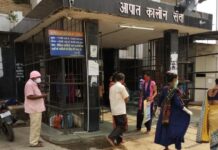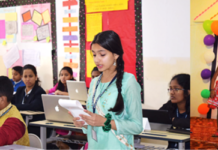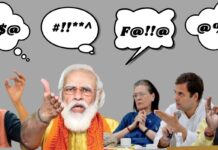Eight months have passed since Coronavirus, better known as Covid-19, broke out. While the pandemic is still creating ripples in the world, it is posing a big challenge to India’s education system. The lockdown imposed in the month of March 2020 in response to the deadly disease brought the education, especially of young children, to the brink. The online education introduced to get over the crisis could not resolve the issue arising from the pandemic even as pupils were promoted to their next classes without exams.
Of late, some states decided to allow schools to resume classes for XI and XII with standard operative procedures in effect to curb the viral infection. But how long they can continue in the wake of fresh wave of Covid-19 cases witnessed in the recent past is anybody’s guess. After the resumption of the classes, covid cases among students have come to light in Haryana and Andhra Pradesh.
While the pandemic has adversely effected education of both younger and older children in equal measure, nursery and primary children are the worst hit. The lockdown brought their learning process to an abrupt halt at a time when they had started adapting to school life.
While the online education introduced by almost all states at the same time, none seems to be content with the outcome of the unconventional mode of teaching. There is a consensus among them i.e. it won’t work! It (the system) is neither practical nor is it a viable alternative to school education for primary or secondary education where the teacher and the taught come in come in direct contact with each other. Both students and teachers find it hard to connect with each other through online session the way they would in a natural classroom experience where everyone feels involved with the ongoing activity. Hence, despite multiple option advantage online learning failed to prove a viable alternative to classroom learning.
Over and above, online education is not possible in the country’s rural hinterland. In far-flung areas where access to internet, availability of smart phones, laptops and 24-hour electricity are still a pipedream the system is bound to fail.
Even as schools have assured automatic promotion to higher classes without examination in the wake of the pandemic, uncertainty lurching over the future of children is worrying parents no end. With no clue to the way forward, they are confused lot. Even as the online teaching mode is being carried out by private schools in Delhi and other major cities it remains elusive for the rural areas with no help forthcoming from the governments, both state and Central.
The continued suspension of schools has further increased the anxieties of parents. They see a bleak future for their children, yet they are not in a position to take a decision. While on the one hand they are concerned about the studies of their wards, they don’t want to take the risk of the deadly infection on the other. They are in a real dilemma.
Sunita Raghav, 30, resident of Rampur Village in Bulandshahr district of UP, is concerned over the education of her sons. Her elder son, who was in the third grade before the lockdown was clamped, is not studying at all. His education has come to an abrupt halt ever since the lockdown was clamped.
Though promoted to the next class, he is unable to adapt to the online teaching method as both his parents are not literate enough to properly operate the Zoom app in the smart phone.
With help from others she could be able to download the app, but found it hard to make her son concentrate on the screen. Poor connectivity to internet added to her woes, sometimes it’s quite irritating. She gets regular homework through WhatsApp, but it’s of no use since her child refuses to learn anything.
Sunita’s family consisting of six members has only one smartphone. All are dependent on is this one phone. She is worried about the future of his wards. “With schools still closed, uncertainty looms over my children’s education. If the online education continues, it is not possible for me to cope with it.”
Bijender Parmar, 39, from Aurangabad village of Bhiwani district in Harayna informed that study of his two children has stopped ever since the lockdown was enforced. His sons are studying in classes fourth and third respectively.
“With no solace from the online education both my children are sitting idle at home. Unless children are mentally prepared for online learning, they cannot learn without the physical presence of a teacher. A teacher has many ways to teach with examples and illustrations which is not possible online. Young children don’t take things seriously when it comes to smart phones or computers,” Bijender contended.
He further said, “For small children like mine, who have just been initiated into education, closure of schools has badly dented their learning process. I am worried about their future as I don’t see the schools opening in near future.”
Another father from Sultanpur Village of Aara district in Bihar, Siddarth Srivastava, 32, has similar predicament. All the primary schools here are shut without an online education option for the village. Siddarth sends his wards for tuition but knows it is not a permanent solution.
Some private schools in Aara have started online education for children, but Sidharth says he can’t afford the fees of these schools. Even if I get my children admitted to these schools, I do not have money to buy computers for them. Moreover, electricity is also a major problem in my village. It is practically not possible. After some time schools have to open but till then much of precious time would have been lost, he shared.
Aashi Rana, 16, a student of class XI from Hapur, Uttar Pradesh, started attending her classes on alternate days. Sharing her experience of online learning during lockdown, she said she faced a lot of difficulty as she could not clear her doubts in math. “If you open Zoom App, you can find so many children attending the online class. Everyone wants clarification from the teacher on a given topic. But hardly a any one of them can get satisfactory answer from the teacher due to poor connectivity and blurred visuals and sounds. Had I been in class in the school, all the doubts of mine would have been cleared,” she said.
A Delhi-based teacher confessed that online teaching cannot be a lasting solution to the loss of academic time. It is, at best, a stopgap arrangement. He speaks of several lacunae in the online learning. One of them is that the system won’t work for the students who are not every tech-savvy. Physical presence of a teacher and a student, he says is indispensable for learning.
While everyone is looking forward to get over the crisis, given the situation arising from the rising cases of Covid-19 in the country the prospects of resumption of schools are bleak. Under the circumstances, the administration should come up with a contingency plan to ways to weather the crisis. They need to train the parents and students in online learning and find ways to make mobiles and other gadgets accessible to all students. They should bear in mind that it is a matter of grave concern never to be taken lightly since at stake is the future of the country.
Disclaimer: We do undertake rigorous checks on content provided by contributors before publishing the same. If you come across some factual errors, kindly bring this into our notice and we shall review your objection and claim as per our policy and display correction credits and corrections on the article itself.
The opinion expressed in the article is of the writer. Writer is a freelance journalist/journalist based in Delhi





























